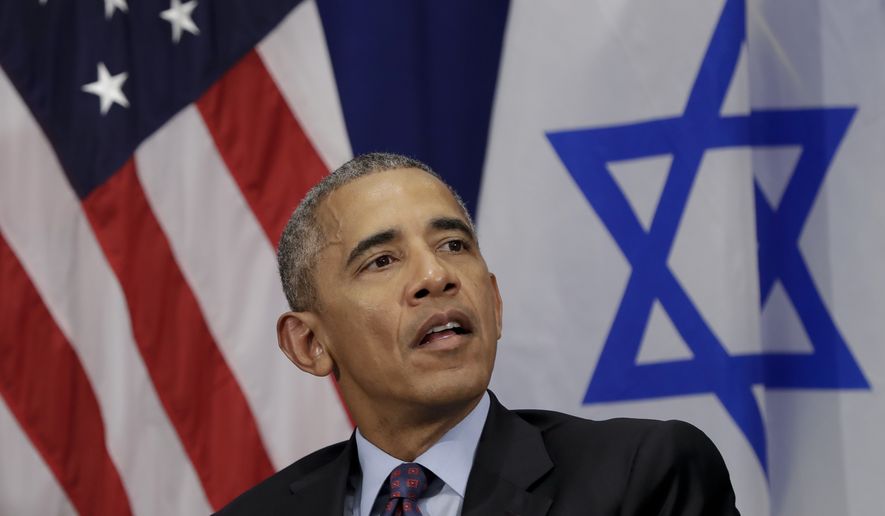The White House threatened Wednesday that President Obama would veto two bills aimed at curbing the impact of his so-called “ransom” payment to Iran for the release of American hostages.
The administration issued the veto warnings against House bills, one that would forbid any future ransom payments to Iran and another that would require public disclosure of the assets of all top Iranian leaders, including Ayatollah Ali Khamenei.
The House passed the latter bill, the Iranian Leadership Asset Transparency Act, on Wednesday night by a vote of 282-143.
On the ransom measure, the White House said the legislation is trying to solve a problem “that does not exist.”
“The United States did not pay ransom to secure the return of our Americans from Iran,” the White House said of its $400 million cash payment in January. “This bill would benefit Iran, not the United States.”
The administration has said it paid the money as the first installment of settlement of a 35-year-old arms deal, money that was owed in a $1.7 billion ruling by the claims tribunal at The Hague. Iran released four American prisoners at the same time the money was delivered.
SEE ALSO: Maker of EpiPen defends price hikes
The Republican-led House Foreign Affairs Committee approved the measure last week to prohibit the U.S. from making cash payments to Iran and require that Congress be notified before any future claims settlements with Tehran are conducted.
Citing Iran’s status as a state sponsor of terrorism, Republican lawmakers also say the money will be used to finance terrorism around the world.
The White House said the legislation would hurt U.S. taxpayers by barring any payment to Iran required by law.
“This is an unprecedented restriction on the President’s claims settlement authority that would adversely affect our ability to resolve Tribunal claims on favorable terms to the U.S. taxpayer, as we did in January,” the administration said.
The veto message on the asset disclosure bill called the measure “onerous.”
The administration said the Iranian Leadership Asset Transparency Act wouldn’t stop Tehran from financing terrorism or laundering money, and would spur Iranian officials even more to hide their assets.
Further, the White House said the measure could be “perceived by Iran” as an effort to undermine the administration’s nuclear deal with Tehran.
“If the [nuclear agreement] were to fail on that basis, it would remove the unprecedented constraints on and monitoring of Iran’s nuclear program, lead to the unraveling of the international sanctions regime against Iran, and deal a devastating blow to the credibility of America’s leadership and our commitments to our closest allies,” the White House said.
The bill to be voted on this week “is vitally important for us to clearly understand the assets held by Iran’s most powerful people,” said Financial Services Chairman Jeb Hensarling, Texas Republican.
The bill would require the Treasury secretary to develop and post online a list estimating the “funds and assets” held by senior Iranian political and military leaders, along with a description of how they acquired the assets and how those assets are employed.
The White House said the measure “could compromise intelligence sources and methods.”
“These onerous reporting requirements also would take critical resources away from the U.S. Department of the Treasury’s important work to identify Iranian entities engaged in sanctionable conduct,” the administration said.
• Dave Boyer can be reached at dboyer@washingtontimes.com.




Please read our comment policy before commenting.